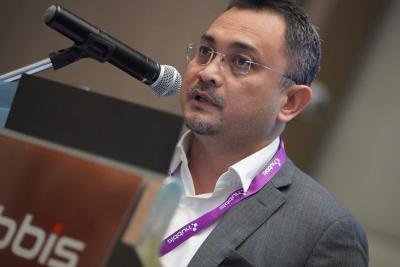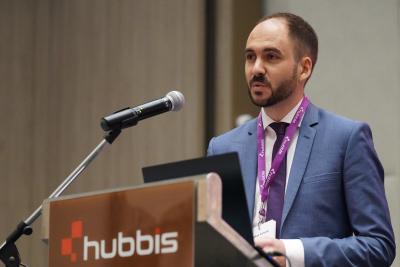Investment Opportunities and Challenges for the Malaysian Wealth Market

Aug 14, 2018
Are Malaysian HNWIs becoming more international in their investment thinking? What products do the wealth management experts believe represent the best opportunities for their clients for the next six to 12 months? How can advisers encourage the right products for long-term portfolio growth? What is the demand for China, for gold, for structured products and other defined strategies?
Panel Members
Michael Chang, Chief Investment Officer, Fixed Income, RHB Asset Management
Shan Saeed, Chief Economist, IQI GLOBAL
David Meier, Director, Investment Solutions Sales, Leonteq Securities
Martin Huxley, Head of Precious Metals, Asia, INTL FCStone
Carmen Chung, Head of ETF and Index Team, Samsung Asset Management
Valentin Laiseca, Executive Director, MSCI
The last discussion of the Malaysian Wealth Management Forum began with an asset management expert promoting the attractions of the ETF market. “We see the ETF as a vehicle that has key characteristics for diversification, for easy access, relatively low entry costs, and easy and visible trading,” this expert explained. “We have launched a China internet ETF listed in Hong Kong that gives access to a basket of the leading Chinese internet stocks listed in the US, China, Hong Kong and elsewhere. We launched this product trying to catch a theme. We also note that the Chinese government has been asking all these leading names to also list onshore in China, so our ETF vehicle will be able to capture any such supplementary listings of these stocks.”
Another expert in fixed income, credit and structured products focused on these investment areas. “As an Asian asset management house our focus has always been more on Asian fixed income solutions and hence we like emerging markets. Looking from a global perspective the rate rises this year and the yield uplift we have seen in investment grade and high yield paper, but in Malaysia we do not see more policy rate increases for the rest of the year - we hiked in January this year and the real rate has been positive – so we feel fixed income here is still relatively bullish.”
China in greater focus after MSCI realignment
The inclusion of China A shares in the MSCI global benchmarks means that investors managing an Asia-Pacific portfolio, regional portfolio or a global portfolio can no longer ignore China A shares. “There are now 226 securities in the MSCI China A list that will be part of the MSCI global benchmarks, mostly large caps with mostly very liquid stocks that are accessible through Stock Connect,” reported one panellist. “If fund managers now ignore China A they are going to have a large tracking error in their regional or global portfolios. There are options for overcoming this, such as ETFs, pairing up with an active manager who has China A expertise, or possibly quant. Those are the three approaches that we have talked about investors when it comes to approaching China.”
A structured products expert added his insights. “Each client has different needs and a different market view and different risk tolerance,” he observed. “We tailor products for them according to their needs and views on the market. However, what is quite similar across all the clients is that everyone must deal with greater volatility this year. Accordingly, clients want to manage this volatility and they want to have some sort of a buffer on the downside, so if markets drop they are to a certain extent capital protected. Generally, therefore, people want to remain invested, but they are more uncertain than for many years.”
Structured products for more volatile conditions
He explained that an interesting product split between cash and the equity market allows for downside protection and a 10% return on the cash, while another popular structure provides more capital protection with some participation and a third structure allows participation on both the downside and the upside.
Another panellist highlighted the appeal of physical gold, especially for broadly balanced high net worth portfolios. Gold has a variety of key attributes that Asia’s HNW investors should understand. It has historically proven to be one of the safest and most stable stores of value available to investors. There is limited supply and the quality of newly mined gold is less predictable than before. Gold is an ideal hedge against both inflation and global crises, of whatever form, whether financial or geopolitical. As it does not correlate significantly with the mainstream bond or equity or currency markets, it is an ideal diversifier.
Gold – alluring, especially in times of uncertainty
The same expert also highlighted some results from a physical gold survey the firm conducted with Hubbis earlier in 2018. The survey showed that there is firm and growing demand for physical gold in Asia, as well as rising demand from Western economy investors to buy and store gold in Asia, especially as the precious metals infrastructure of both Hong Kong and Singapore have improved so markedly to leading global standards. His firm’s precious metals expertise is available to help HNWIs and their wealth management advisory firms buy, hold, trade, leverage and sell physical gold.
“We are not suggesting that people should be putting the vast majority of their investment into gold,” he concluded, “but certainly there is a common view that somewhere between 5% and 15% seems to be the number, according to the survey respondents. Right now, when one looks at the amount of debt in the system and the further rate rises expected over the next 12-18 months, and when one considers the estimate of $10 trillion of debt to be refinanced over the next five years, plus all the geopolitical worries, then gold clearly has an important role. And physical gold is preferable as it is outside the global financial system, whereas paper gold such as an ETF has exposure to a financial crisis.”
Geopolitical concerns in focus
An expert turned the discussion to pick up on the theme of geopolitical concerns, such as trade wars, noting that while China is pulling its people rapidly out of poverty, America is struggling with 41 million people below the poverty line. If there is a trade war, the US will suffer more,” he observed. “China has $3.1 trillion of reserves and while China would also be hurt – two elephants fighting is never bloodless - China can turn to and develop other markets outside the US.”
And as to the much-touted potential collapse of the Chinese bond market, he also noted that 93% of local Chinese bonds are owned by Chinese. “I fail to see how the 7% of foreigners, even if they withdraw en masse, can collapse the market, especially with the level of reserves there.”
One panellist then noted that higher rates are good for long-term investors such as pension funds. However, another expert noted that the high debt levels in many countries in Europe - especially in countries such as Spain with high unemployment levels, or in Italy – are dangerous when debt service costs are rising sharply. However, yet another panellist said that he doubts any country would collapse, as there should be investors with risk appetite to take on those assets.
Watch out, Europe has plenty of problems
Nevertheless, one specialist added further words of caution. “It is all about north and south Europe, and as I see it the taxpayers of saver countries such as Germany or Holland will not want to bail out the southern European countries that refuse to adjust to their economic and fiscal realities, as those countries do not have the money but they still want to spend.”
Turning to Brexit the same expert warned that Brexit was an emotional decision and not a good one as such a high volume of UK trade is with Europe. “Look at the pound, for example, it has slumped since Brexit, as there is a lot of negativity surrounding this move.”
The discussion closed with the panellists agreeing that the current market and geopolitical outlook are not as clear as they have been, but that the longer-term investment horizon remains positive due to ongoing global economic growth and corporate profitability. Diversification is however in ever greater focus than in recent years.

Founder & Chief Executive Officer at Hubbis

More from Michael Stanhope, Hubbis
Wealth Solutions & Wealth Planning
Family Offices and the New Dawn for UHNW Wealth Management in Asia
Strategy & Practice Management
A Call to Arms: Wealth Managers in Asia Must Adapt Now to a Brave New World
Latest Articles






